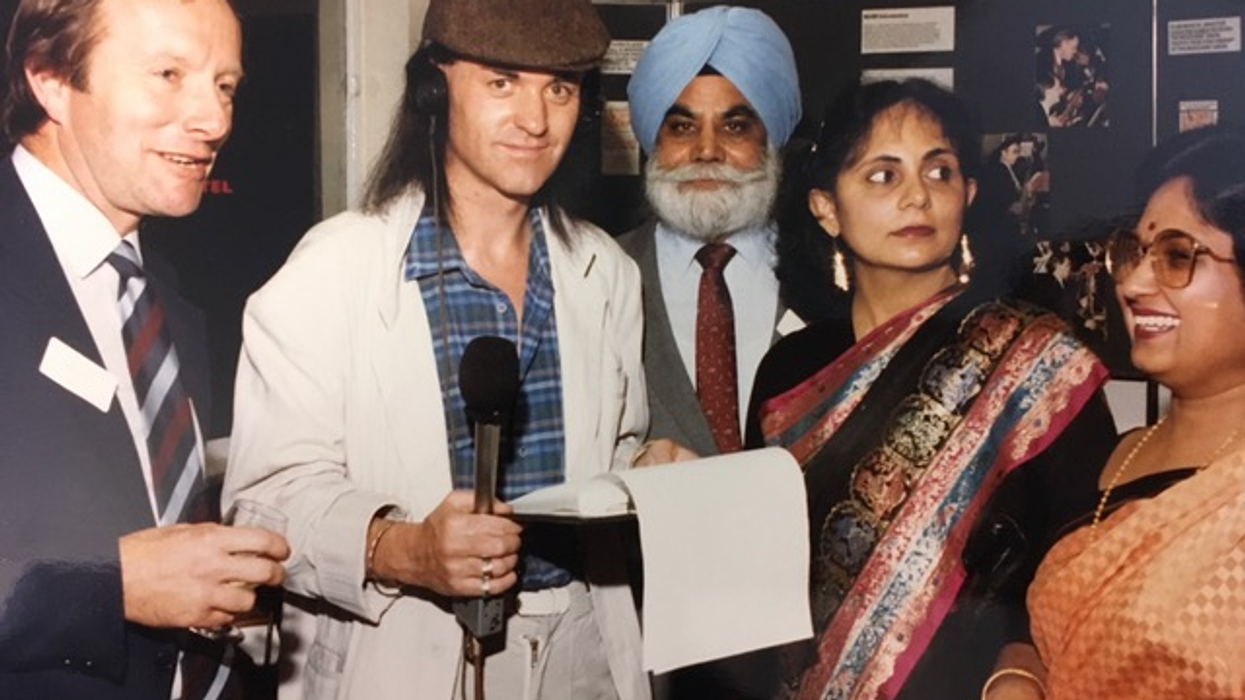MIKE ALLBUT was a broadcasting pioneer who played a major role in the transition of Asian programmes on BBC local radio in England from targeting first generation immigrant communities to reaching out to young British Asians.
Born in Scotland and raised in Suffolk, Allbut moved to Leicester in the 1970s to take up a teaching role in inner city Highfields. His pupils there introduced him to the joys of Bollywood, instilling in him a love of the music of female playback singers such as Lata Mangeshkar and Asha Bhosle.
Having moved to a social work post at the Belgrave Neighbourhood Centre at the heart of Leicester’s ‘Golden Mile’ in the late 1970s, Allbut heard an advertisement for new presenters for the daily Six O’clock Show on BBC Radio Leicester.
The show was so popular that according to research by the Commission for Racial Equality, just seven per cent of the local Asian population did not listen to it – with two-thirds tuning in every day.
Allbut told me though he applied for the job, he was shocked to find himself, a long-haired white social worker, appointed.
His was the first presentation voice in Asian radio without a south Asian accent. His style – more modelled on BBC Radio One – enabled him to cut through and reach out to young British Asian teenagers caught between the two cultures.
On Friday evenings in the early 1980s, he would take the radio car out into the streets of Leicester and regularly stop traffic as he was surrounded by fans.
Allbut went on to reach out in new programmes such as Weekend Bazaar, an unashamedly zoo format in which he was surrounded by young British Asian co-presenters and helpers in the studio.
His presentation was like he himself – vibrant and high energy – and reached out beyond the transmitter footprint of BBC Radio Leicester across swathes of central England.
When BBC local radio expanded its Asian programming in the late 1980s, he inspired many of his listeners in places such as Derby, Birmingham and Luton to get into radio via their local stations. Many of his own regularly changing studio crew also went on to have careers in the BBC, with one of them, Kamlesh Purohit, becoming managing editor of BBC Radio Leicester in the 2020s.
Allbut also brought the sound of his beloved Bollywood tracks to BBC Radio 2 in the early 1990s.
One of his proudest moments in radio, though, came in 1980 when in front of 1,000 people in a spellbound audience at the Haymarket Theatre in Leicester, he had the honour of introducing the ‘Queen of Song’, Lata Mangeshkar, to the stage.
Allbut was a pioneer of an early iteration of the British Asian sound we hear today on the BBC Asian Network. Without him British Asian radio would have been different – and poorer. Having worked with Allbut from the late 1970s when we were both freelance presenters at BBC Radio Leicester and seen his career flourish – I’ll miss him and his zest for life.
(Liam McCarthy is a former managing editor at BBC Radio Leicester and the author of a new book, Finding a New British Asian Sound on BBC Radio, which is published by Palgrave Macmillan)




